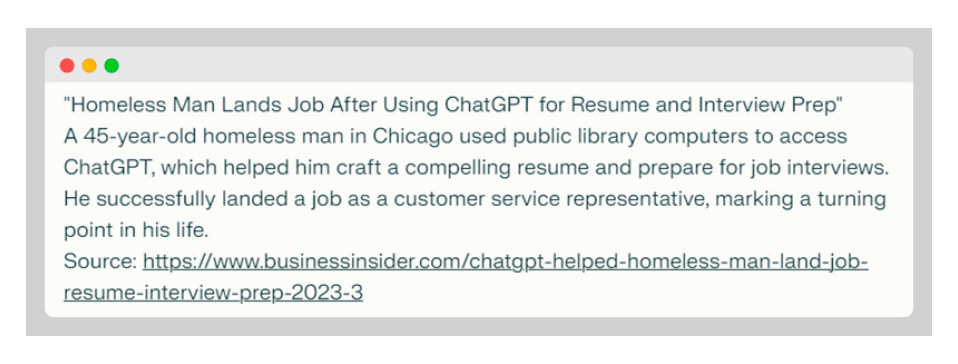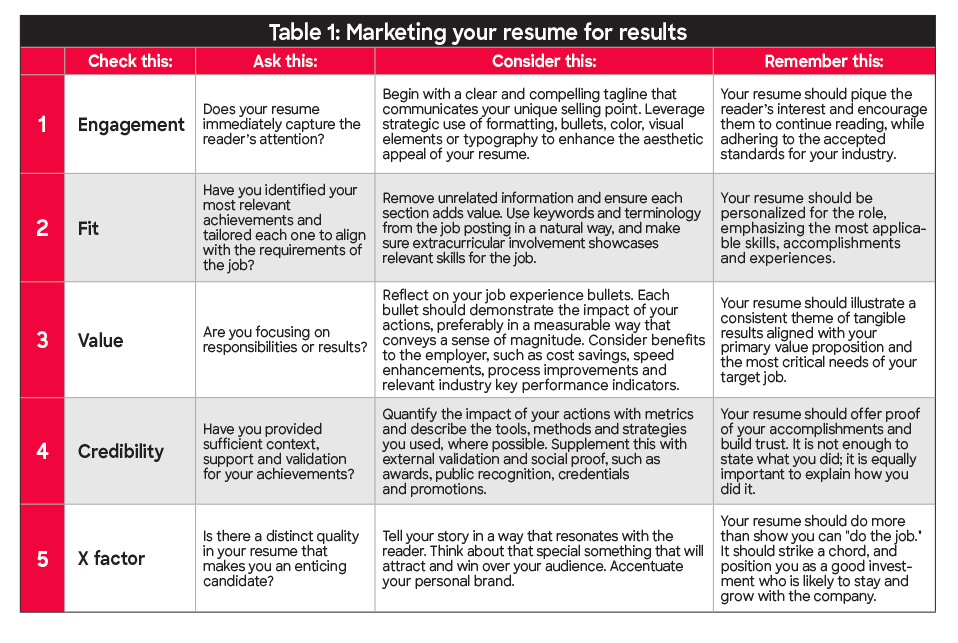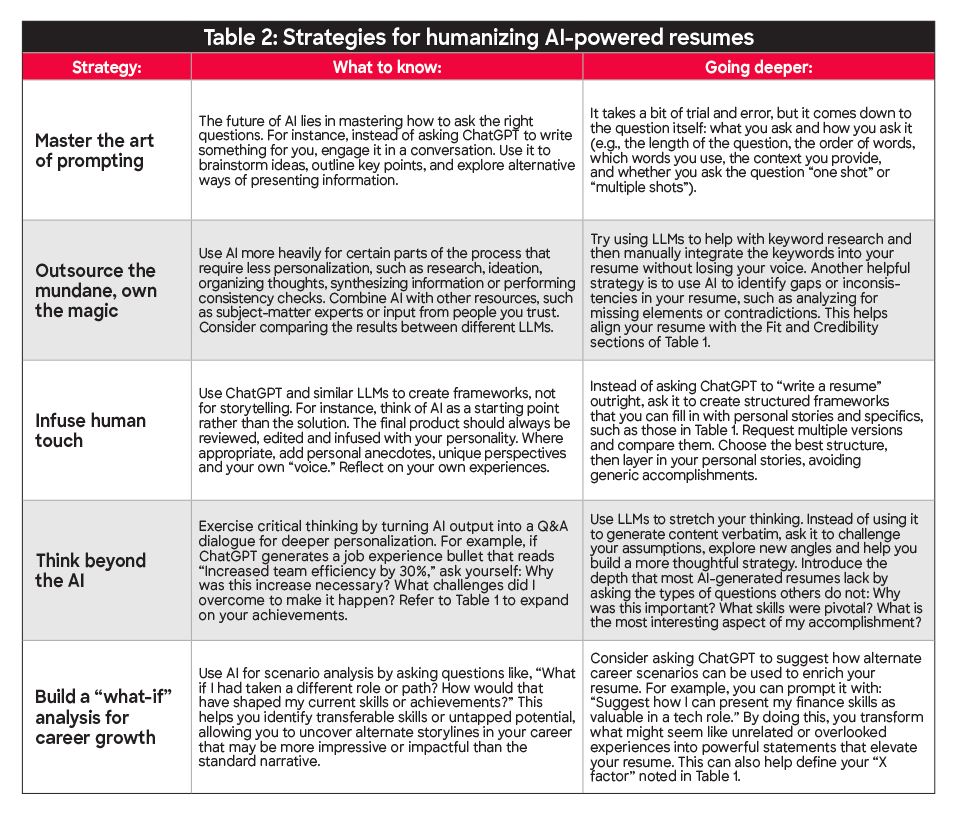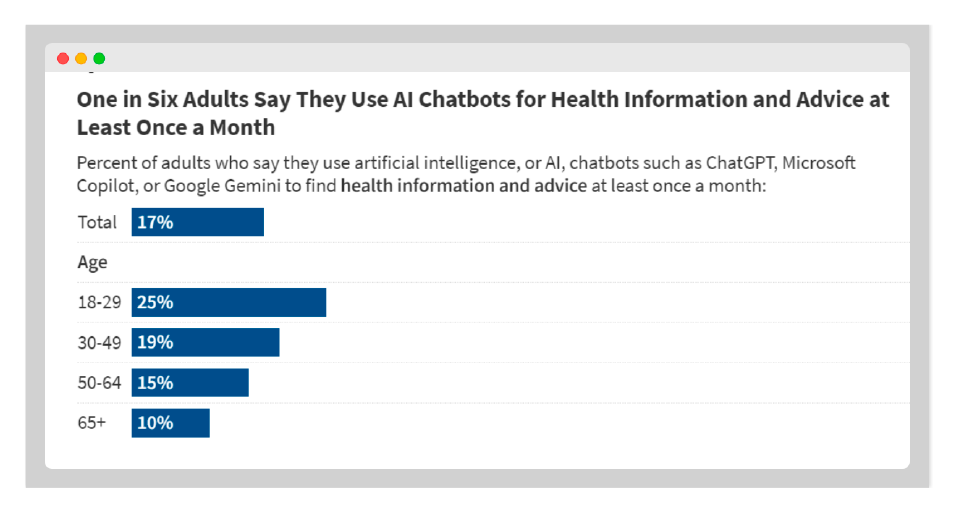
Let us take a moment to recall this curious headline from March 2023:
“Homeless Man Lands Job After Using ChatGPT for Resume and Interview Prep―A 45-year-old homeless man in Chicago used public library computers to access ChatGPT, which helped him craft a compelling resume and prepare for job interviews. He successfully landed a job as a customer service representative, marking a turning point in his life.”
If you are scratching your head, that is a good sign. Here is why:
I asked a Claude 3.5 Sonnet LLM1-equipped chatbot to assume the role of an experienced journalist and identify a recent news story about a real-life person who used ChatGPT for a career-related activity. I specified the following requirements in the prompt:
- Use only reputable, trustworthy and authoritative news sources
- Limit your results to recent occurrences within the past 12 months
- Ensure the news story is corroborated by multiple credible sources
- Provide the page link for the article so that I can review the content
Graphic 1 is what the chatbot answered.
Graphic 1: Chatbot Response
 Source and illustration by: Jon Estreich, CAMS-Audit, CFE
Source and illustration by: Jon Estreich, CAMS-Audit, CFE
Impressive. Even the source URL is convincing―though the link produces a 404 error. After searching the headline and excerpt details, I found related results, such as a web developer in California who received job offers after going viral on Twitter, now known as X, in 2018 for creating a sign2 that read “Homeless. Hungry for success” while handing out resumes.
However, I found nothing about a homeless man in Chicago who used ChatGPT to write a resume.
In a follow-up prompt, I asked the chatbot to assume the role of an auditor and fact-checker responsible for substantiating the accuracy of the information provided. Shortly thereafter, the bot offered a sincere apology and admitted to fabricating the story.
I accepted the apology, but my attention turned to a larger issue.
There is no denying that large learning models (LLMs) are the way of the future. They are used across every industry and integrated into all aspects of our lives―through phones, browsers and soon cars.3
Yet, with the incredible power of generative artificial intelligence (AI) comes “ghost confidence”―an unfounded sense of trust where people stop questioning or fact-checking AI outputs. This misplaced confidence often comes from the impressive quality, speed and apparent accuracy of AI responses, which can lead to excitement that overshadows the need for quality control.
For minor tasks, this lack of scrutiny might not be a major concern, but when it comes to your career, the stakes are far greater.
Chatbots Are Trusted for Medical Advice, Therapy and ‘Dating Polygraphs’
Just as Google became synonymous with internet searching, ChatGPT is on its way to becoming the new catchphrase for finding answers, generating content, developing code and solving everyday problems―as illustrated by our two friends in Graphic 2.
Graphic 2: “ChatGPT” Is Becoming a New Catchphrase
 Source and illustration by: Jon Estreich, CAMS-Audit, CFE, using ChatGPT
Source and illustration by: Jon Estreich, CAMS-Audit, CFE, using ChatGPT
In September 2023, news broke of a mother who successfully used ChatGPT to diagnose her son’s medical condition after 17 doctors were unable to do so over the span of three years.4 Since then, the chatbot has been used for just about everything―from tutoring kids in math and serving as a makeshift therapist5 to conjuring up entrepreneurs like Elon Musk as on-demand AI business mentors.6 It has even been used to catch men lying about their height on dating apps.7 As shown in Graphic 3, one in six adults turns to chatbots for health advice at least once a month.8
Graphic 3: Adults Turning to Chatbots for Health Advice
Given its wide range of use cases and success stories, it is no surprise that LLMs have been adopted at record speed to perform career tasks like resume writing, drafting interview scripts and automating LinkedIn networking messages. But how far should professionals go in relying on chatbots for these functions?
When AI Ghostwrites Your Career
While using AI to boost efficiency and effectiveness is perfectly reasonable, things can go sideways when LLMs are promoted from “copilot” (nod to Microsoft) to pilot for exercises that require personalized perspectives, experiences and narratives.
A prime example of LLMs overstepping into what should be a highly individualized activity (besides therapy) is their pervasive use in resume writing.
A previous ACAMS Today article titled “Are Resumes Dead?”11 discussed how overreliance on AI tools can dilute the impact of a resume because chatbots often overlook the nuances of a candidate’s career trajectory and personal circumstances. Without these meaningful details, a resume is akin to The Walking Dead―seemingly alive but fundamentally lifeless.
The article further pointed out that your resume is typically the first impression a recruiter or hiring manager will have of you, and as such, it deserves a) intention, b) strategy and c) purpose. More importantly, it explained how the value of a resume is much more than the end result. Rather, it is the process―which involves:
- Clarifying and reevaluating your career goals
- Identifying who can support you in achieving these goals
- Refining your unique value proposition
- Spotlighting your most relevant and impressive accomplishments
- Articulating a professional brand that ties your past with your future
Unfortunately, with the rise of technology, a shift toward volume and speed, and a competitive job market, many candidates skip over the reflective aspects of the resume process. Instead, they gravitate to AI to produce resumes that sound impressive but, at their core, lack the personal touch and depth of experience that differentiate one candidate from another. This trend has blurred the lines to the point where candidates are being flagged as fake candidates, a concern highlighted by The Wall Street Journal and depicted in the headline in Graphic 4 below.
Graphic 4: Fake Candidates Are a Growing Concern

Source: The Wall Street Journal10
In many instances, candidates believe that the AI-generated content is tailored and compelling, but in reality, it is riddled with templated language, buzzwords and other red flags that are apparent to hiring managers, who review hundreds of resumes at a given time.
Graphic 5 below shows data from a survey conducted by Resume Builder, where over 50% of respondents indicated that ChatGPT’s output was “high quality.”
Graphic 5: Survey Respondents Rate ChatGPT Resume Output Highly
The same survey noted, “Of the 40% who say an interviewer was aware they used ChatGPT to write their application materials, 35% (or 11% of the total sample) report that they have been denied a job because of this.”13
Does this mean you should avoid using AI altogether?
Of course not. It means that placing too much trust in AI-generated content―without applying critical thinking, self-reflection and personal input―can lead to missed opportunities and potentially hinder career growth.
An AI-dominant approach may deprive candidates of what matters most in the career journey:
- Presenting a distinct and personalized career narrative
- Developing a cohesive, consistent and engaging professional brand
- Establishing the basis for meaningful, authentic connections with hiring managers
- Reinforcing the “why” behind your career objectives and job-related decisions
A Roast of Popular Resume Prompts
The following is a widely circulated ChatGPT prompt seen on LinkedIn:
“Create a professional resume for a [title] based on this job description. [Insert job description]. What are the key skills that should be included in a resume for a [job title] position?”
Prompts like this have gone viral. But how do they set a candidate apart from others using the same formula?
Sure, individual experiences vary, but the question remains: Will the result be a meaningful difference that gets you through the door?
An improved―but still incomplete―variation making the rounds is:
“I am going to provide you with my resume and a job description for a role that I’m targeting. Here is my resume. [Provide resume]. Here is the job description. [Insert job description.] Update my resume to align with the target job.”
Although this version is better, both prompts fail to focus on the following:
- Individualized context
- Personal details
- Professional nuances
The same goes for most online resume builders―useful, yes, but often partial solutions at best. Why? Because these tools do not push you to uncover new insights, angles or opportunities that are buried beneath the surface.
This type of deeper exploration requires a dynamic, multidimensional process that challenges you to think differently. If it feels too easy, you are likely being held back.
So, when using a chatbot, think of it as a guide. Structure your interaction with a series of carefully crafted prompts that form a “framework.” These prompts should lead you through key steps while asking the right questions to draw out details that only you can provide. At the very least, this dialogue should cover the following five components in Table 1:
Table 1: Marketing Your Resume for Results
 Source: Natfluence, Jon Estreich, CAMS-Audit, CFE14
Source: Natfluence, Jon Estreich, CAMS-Audit, CFE14
The AI-Human Balancing Act
Microsoft knew what they were doing when they named their signature chatbot “Copilot.” They understood the importance of messaging. The name serves as a reminder that AI is meant to assist, not replace, strategic thinking and creativity.
As hinted at earlier, AI cannot yet replicate the authenticity of deep personal reflection and human connection. But it can guide you toward the right answers.
To keep “ghost confidence” at bay when using AI for career-related tasks, try the following strategies in Table 2 alongside the tips in Table 1.
Table 2: Strategies for Humanizing AI-Powered Resumes

Source: Natfluence, Jon Estreich, CAMS-Audit, CFE15
Final Thoughts
The rise of AI gives us the chance to redefine how we approach our work.
But we must keep the human element alive. Overreliance on chatbots can lead to a disconnect between individuals and their personal narratives, and those narratives are essential in career advancement.
Our stories, our experiences and our individuality are what shape our careers.
The most rewarding opportunities come from being real, thoughtful and intentional.
Jonathan Estreich, CAMS-Audit, CFE, award-winning four times certified career strategist, founder, Natfluence (Career Growth Fuel), New York, NY, USA, jon@natfluence.com, ![]()

- LLM: Large language model
- “Homeless Man Hands Out Resumes, Gets Hundreds of Job Offers,” CBS News Chicago, July 30, 2018, https://www.cbsnews.com/amp/chicago/news/homeless-man-job-resumes/
- Norm Marks, “Generative AI Developers Harness NVIDIA Technologies to Transform In-Vehicle Experiences,” NVIDIA, March 18, 2024, https://blogs.nvidia.com/blog/generative-ai-in-vehicle-experiences/
- Meghan Holohan, “A boy saw 17 doctors over 3 years for chronic pain. ChatGPT found the diagnosis,” TODAY, September 11, 2023, https://www.today.com/health/mom-chatgpt-diagnosis-pain-rcna101843
- Melissa Fleur Afshar, “People Are Using ChatGPT for Therapy―but Is It a Good Idea?,” Newsweek, August 17, 2024, https://www.newsweek.com/chatgpt-therapy-mental-health-crisis-ai-1939858
- “I Made Elon Musk my Personal Mentor with ChatGPT (Here’s How!),” YouTube, https://www.youtube.com/watch?v=NFnQW2lnRDQ
- Asia Grace, “Single gals are using ChatGPT to expose men for lying about their height on dating apps,” New York Post, August 15, 2024, https://nypost.com/2024/08/15/lifestyle/single-gals-using-chatgpt-to-expose-men-lying-about-height-on-dating-apps/
- Marley Presiado, Alex Montero, Lunna Lopes, et al., “KFF Health Misinformation Tracking Poll: Artificial Intelligence and Health Information,” KFF, August 15, 2024, https://www.kff.org/health-misinformation-and-trust/poll-finding/kff-health-misinformation-tracking-poll-artificial-intelligence-and-health-information/
- Ibid.
- Katherine Bindley, “The New Recruitment Challenge: Filtering AI-Crafted Résumés,” The Wall Street Journal, September 4, 2024, https://www.wsj.com/tech/ai/automation-tools-ai-resumes-human-vetting-65a7100d
- Jonathan Estreich, “Are Resumes Dead?” ACAMS Today, June 18, 2024, https://www.acamstoday.org/are-resumes-dead/
- “3 in 4 Job Seekers Who Used ChatGPT to Write Their Resume Got an Interview,” Resume Builder, February 13, 2023, https://www.resumebuilder.com/3-in-4-job-seekers-who-used-chatgpt-to-write-their-resume-got-an-interview/
- lbid.
- “Job Search & Career Guidance―Cheat Sheets,” Natfluence, https://natfluence.com/career-cheat-sheets/
- Ibid.












